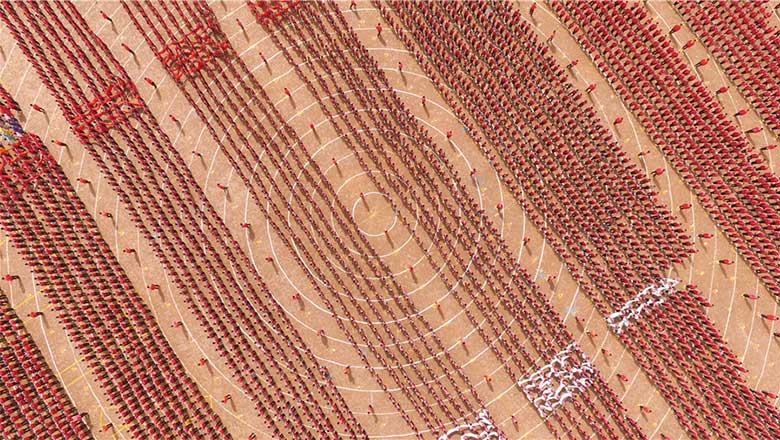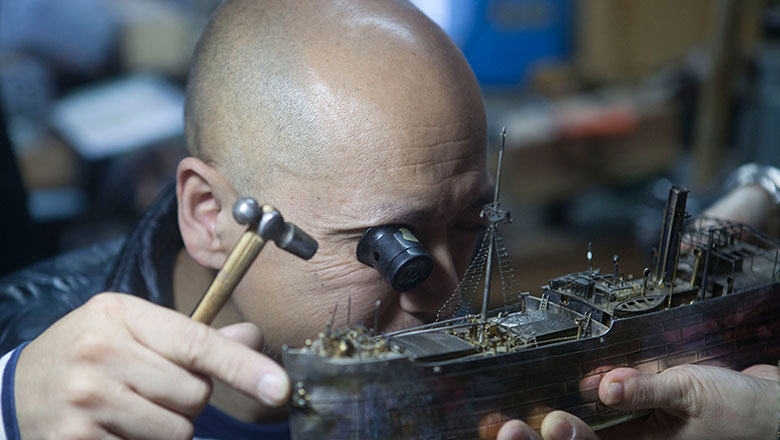Harsher terms await drug offenders
Updated: 2016-04-08 03:40
By Cao Yin(China Daily)
|
||||||||
Chinese courts will pass stricter sentences for a range of drug-related offenses "as the drug problem spreads more rapidly and drug offenses occur more frequently", Ma Yan, a senior Supreme People's Court judge, said on Thursday.
According to the court, 137,198 people were punished for drug-related crimes last year, up 25 percent year-on-year.
A judicial review from the top court called for the tougher sentences and added 12 new types of drugs, including methcathinone and tramadol, to the list of controlled substances.
The review makes smuggling, transporting, buying, producing or illegally holding any of 28 drugs a criminal offense.
Meanwhile, the criminal threshold for possession of ketamine, known as "K powder" and the most widely abused drug in the country, has been lowered, the document said.
"The review defines 500 grams of ketamine as a 'large amount' and people who smuggle, transport, purchase, make or illegally possess that much of it will be sentenced to at least 15 years in prison," said Fang Wenjun, a judge in the top court's No 5 Criminal Tribunal, which specializes in drug cases.
Previously, offenders received a 15-year sentence for cases involving a kilo of ketamine, Fang said.
"The fight against ketamine in our country is becoming more serious," he said, adding that the drug poses significantly public safety dangers.
"We found many cases in which defendants injured others or crashed while driving under the influence of ketamine, because it often makes users delusional," he said.
Li Wenjun, an associate professor who specializes in narcotics control at the People's Public Security University of China, applauded the tougher penalties in the new judicial review, but said it will be difficult to halt drug abuse, in part because the chemical ingredients are available.
Ketamine, often used as an anesthetic in surgery, relieves pain, "but it has indeed occurred in the past that medical professionals stole chemical ingredients from hospitals and refined them into the drug," she said.
Although China has taken steps to limit the accessibility of the chemicals needed to make ketamine, people can still buy raw materials to refine into ketamine, she said, which is why K powder is often seen in drug cases.
caoyin@chinadaily.com.cn
- Xi: Talks 'only correct way' for China, ROK
- Xi to Obama: Disputes should be managed
- Cypriot court remands in custody man suspected of hijacking EgyptAir flight
- Govt eyes luxury tourists amid concerns over safety
- Sleep tight and don't let sharks bite at Paris aquarium
- Aung San Suu Kyi appointed as Myanmar's new foreign minister

 Slogans for family planning need to be updated
Slogans for family planning need to be updated
 26,000 Kung Fu students form huge patterns
26,000 Kung Fu students form huge patterns
 Chinese arts prove popular in Hong Kong spring sales
Chinese arts prove popular in Hong Kong spring sales
 Reindeer Herders Day celebrated in northern Russia
Reindeer Herders Day celebrated in northern Russia
 World's major tech companies step into the VR world
World's major tech companies step into the VR world
 Skilled man gives new life to antiques
Skilled man gives new life to antiques
 Top five car-hailing apps in Chinese mainland
Top five car-hailing apps in Chinese mainland
 Shanghai builds 'Deep Pit Hotel' upon a former mine
Shanghai builds 'Deep Pit Hotel' upon a former mine
Most Viewed
Editor's Picks

|

|

|

|

|

|
Today's Top News
Marriott unlikely to top Anbang offer for Starwood: Observers
Chinese biopharma debuts on Nasdaq
What ends Jeb Bush's White House hopes
Investigation for Nicolas's campaign
Will US-ASEAN meeting be good for region?
Accentuate the positive in Sino-US relations
Dangerous games on peninsula will have no winner
National Art Museum showing 400 puppets in new exhibition
US Weekly

|

|







